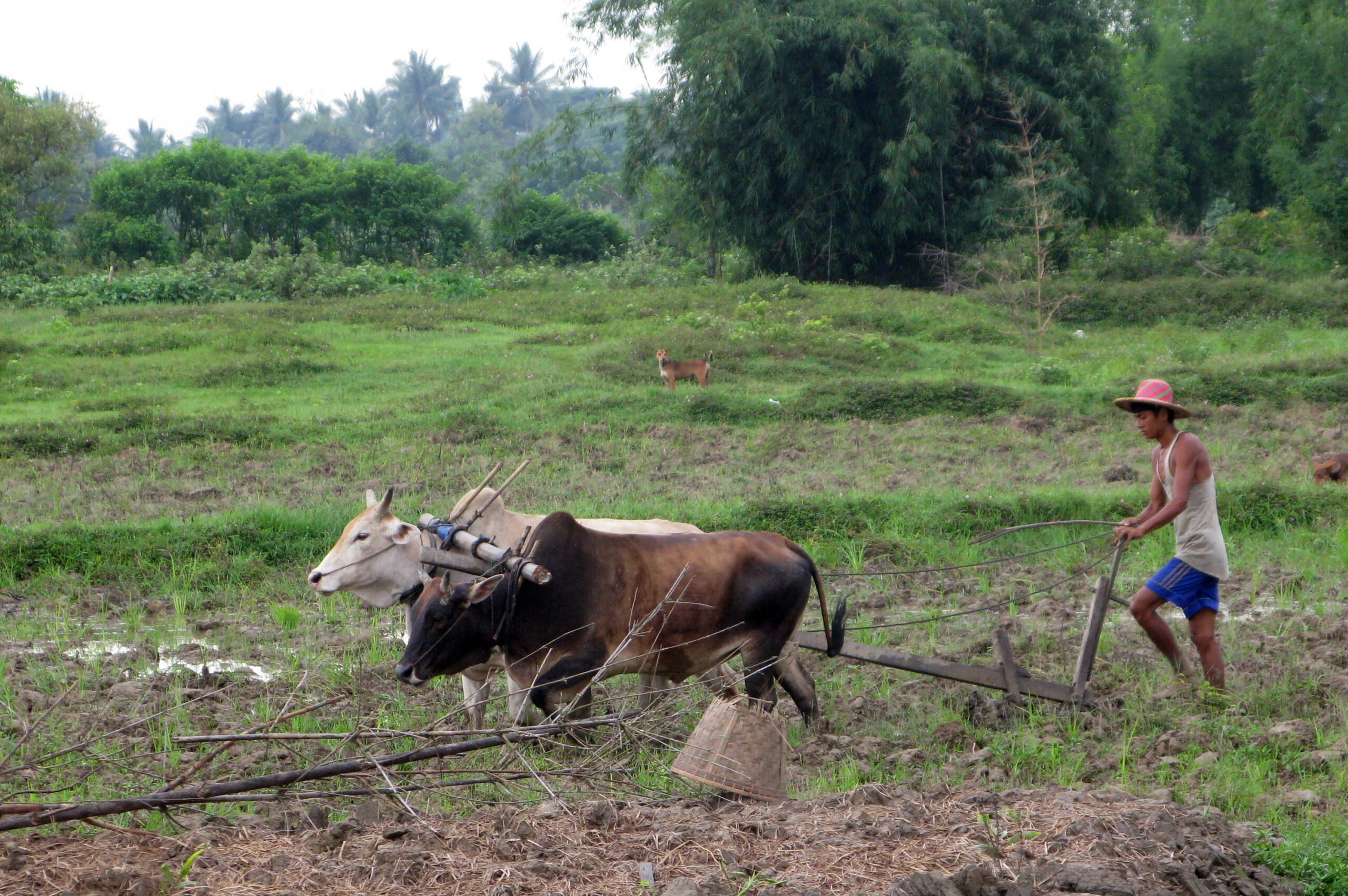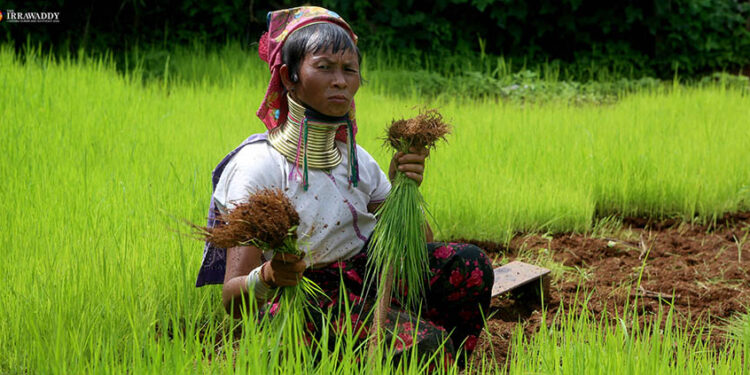CHIANG MAI, Thailand – The six-month window for the registration of vacant, fallow and virgin land for the use of agribusiness in accordance with the newly amended Vacant, Fallow and Virgin (VFV) Land Management Law will come to a close on March 11.
One month after the amended law was passed by the Union Parliament last September, the government began efforts in raising awareness about the law, using state-run media to urge the public to register land despite a lack of information on specific bylaws.
The law gave rise to public outcry from those who condemned it as unfair and a threat to land rights of the ethnic minority groups who practice traditional customary tenure and who fear losing their lands which they own without legal statutory tenure.
Last week, the Chin Land Affairs Network (CLAN), with members from all nine townships of Chin State, urged for the law to be revoked, saying it would ignite conflict in the area.
Mang Za Khup, CLAN’s spokesperson, said Chin people are the original owners of lands in Chin State and this must not be changed without explicit consent from the indigenous Chin people. He told The Irrawaddy on Thursday that Chin people have lived and worked on freehold lands in the state for thousands of years and that the 2012 Vacant, Fallow and Virgin Land Management Law and its 2018 amendment would cause them to lose their freehold land rights.
Likewise, hundreds of civil society groups and land rights networks from ethnic Karen, Kachin, Shan, Chin, Karenni and Mon communities have been expressing their concerns over the laws.
In December, the Karen National Union (KNU), a signatory of the nationwide ceasefire agreement (NCA), publically objected to the law and urged for it to be revoked, saying it goes against the principles of the NCA which stipulates that the drafting of land policies is to take place at sessions of the Union Peace Conference.
Padoh Mahn Ba Tun, head of the KNU’s forestry department, told The Irrawaddy on Thursday that the KNU would hold negotiations with the government on the issue as the government’s principles on land issues are based on a state-owned approach, while the Karen practice community ownership.
Many of those in the ethnic areas want to continue their practice of shared land ownership which includes freehold lands, community forest reserves and customary tenure for rotational farming practice.
For example, in KNU-controlled areas in Tannitharyi Region and Karen and Mon states, there is an estimated 3 million acres of land regarded as community forests, wildlife sanctuaries and forest reserves, according to Padoh Mahn Ba Tun.
Which amendments to the law are causing concern?
The amended law stipulates that lands under customary tenure do not need to undergo registration. Article 30 (a and b) of the amended law specifically mentions that lands to be registered would not include (a) those under customary tenure of the local indigenous people or (b) public land including religious compounds, socio-economic buildings and roads.
Members of the ethnic minorities have decried the lack of details on how the customary tenures would be exempted and through decades of experience with difficult bureaucratic structures, many do not trust on the laws.
“What we want is for the customary tenure and freehold lands to be protected under the law, not to be destroyed,” Mang Za Khup, who is a resident of Chin State’s Tedim Township.
He added that there have been cases of outsiders who are not Chin nor from the state trying to register Chin lands so they may use them for their own agriculture businesses and this affects their traditional rights to customary tenure.
Lands in Myanmar are constitutionally owned by the state in accordance with the 2008-military backed Constitution and every land user is required to seek registration from the land records department.

Some 45 to 50 million acres of land in Myanmar is regarded vacant, fallow or virgin. Some 82 percent of this land lies in the ethnic states, according to a November statement published by Land In Our Hands, a non-government land rights group which cited data from the government’s department of farmland management and statistics.
The law says the government is carrying out the land registration process with the aim of boosting economic development in the country and to create job opportunities for landless citizens by using the vacant, fallow and virgin lands for agriculture, animal husbandry, mining and other legal businesses. The main crop is to be rice grown for both export and domestic consumption.
As of May 2018, figures from the agriculture ministry show 5.9 million farmers were given certificates to use 24.86 million acres of farmland after they registered their lands.
The amendment to the law stipulates that the Central Committee may grant rights to the use VFV land for 30 years of lease for areas covering 3,000 to 30,000 acres for the growing perennial plants, farming and industrial crops, bringing the figure down from 5,000 to 50,000 under the previous law.
The law says small hold farmers can apply for up to 50 acres of land for their home business of agriculture or animal husbandry.
The law stipulates punishments for those who fail to register their land—those found working or living on unregistered land will be considered trespassers and could also face a punishment of up to two years’ imprisonment or a 500,000-kyats fine.
Those with existing businesses in agriculture, livestock or mining may continue their businesses by seeking an extension permit where necessary. Under the amended law, anyone using lands for a use different to its registered within four years of registration would have their land seized.
The deputy permanent secretary of the agriculture, livestock and irrigation ministry U Myo Tint Htun recently told The Irrawaddy that the ministry is doing their best to get the information about the updated law to the people in rural areas because many are still unaware of the amendment.
The rush to claim lands of the displaced
The law also concerns those who are currently internally displaced (IDPs) from conflict zones in Kachin, Shan, and Rakhine states. Some 106,290 people in Kachin and Shan states are still seeking shelter in both government- and ethnic armed group-controlled areas, according to the UNOCHA’s January 2019 figures. In Rakhine State, nearly 128,000 people are currently displaced. Some 100,000 long-term refugees residing at the Thailand-Myanmar border are still unable to reclaim their lands as they have not been able to return to their home villages despite the peace process being in motion for the past seven years.
U La Dee is one of the IDPs who has been taking shelter at the Baptist church in Moemauk Township, Kachin State since fighting between the Myanmar military and the Kachin Independence Army was reignited in June 2011. More than 70 households from his village, Takaw in Moemauk, fled their homes and joined some 3,000 IDPs sheltering at the churches in Moemauk.
He is worried that the requirements to register their lands for agribusiness or commercial use would make them lose the rights to their lands. Last year, the villagers of Takaw were outraged when they heard about interest from a number of companies in registering their lands as vacant or virgin land in order to secure them for use as tissue-culture banana plantations. He said the companies have already planted some 700 acres of banana tissue-culture plantations in the neighboring village of Nam Seng. Chinese companies earning the rights to use lands for their agribusinesses have been widely reported across many townships in Kachin State.
As for lands belonging to Kachin IDPs, the Kachin State government says it is aware of business operators rushing in to claim rights to the lands for their own agribusinesses and that it has instructed that permission to use land in such ways should not be authorized.
“During my meeting with the Kachin State Chief Minister [U Hket Awng], he said he does not allow these lands to be used for those businesses,” said N-htung Hka Naw Sam, a lower house lawmaker from Myitkyina, Kachin State.
The lawmaker told The Irrawaddy on Wednesday that the chief minister firmly said the state government does not allow such actions on the lands of the IDPs, who he said will soon be able to return home if the military’s four-month ceasefire continues.
Despite the IDPs’ hopes of returning to their own lands, the continued presence of military troops near civilian villages makes their return—and thus their efforts in registering their lands—impossible.
“We want to go back to our village but the military are still camped near the village,” said U La Dee, “If fighting were to break out again, we would be the war victims again, therefore we hope for stability and peace in our areas,” said U La Dee.

















